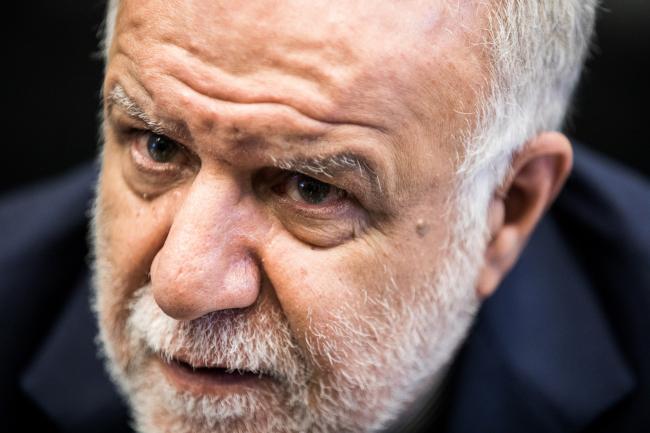(Bloomberg) -- Iran’s oil minister warned that OPEC is in danger of collapse and said the Islamic Republic would respond to members of the bloc who undermine its crude exports, an apparent reference to nations such as Saudi Arabia that have discussed filling the supply gap left by falling Iranian shipments.
"Iran is a member of OPEC for its interests and any threat from member states won’t go unanswered," Bijan Namdar Zanganeh said after a meeting with OPEC Secretary General Mohammad Barkindo in Tehran, according to the oil ministry’s Shana news agency.
His comments come as the U.S. tightens its squeeze on Iranian oil flows, in an effort to cut the Islamic Republic’s exports to zero. The lost barrels, along with supply disruptions in Venezuela and elsewhere, have raised the question of whether OPEC’s biggest producers have the spare capacity to keep the market in balance.
Zanganeh last month accused Saudi Arabia and the United Arab Emirates of exaggerating their surplus oil capacity. On Wednesday, he censured "two neighboring states" for voicing readiness to fill the gap of Iranian barrels in the market.
"I told Mr. Barkindo that OPEC is in danger by the unilateralism of some members and the organization faces the risk of collapse," he said, stopping short of naming names.
The U.S. said last week that it would work in tandem with Saudi Arabia and the U.A.E. to ensure that global markets remain adequately supplied while it constricts flows from Iran. U.S. President Donald Trump is stepping up pressure on the Islamic Republic, a longstanding political foe of Riyadh, after he quit an accord on the country’s nuclear program last year.
Saudi Energy Minister Khalid al-Falih said that the kingdom will accommodate Iran’s customers, albeit acting gradually.
Discord between OPEC’s Gulf members has shaken the organization in the past year.
Qatar announced its exit from the organization in December after more than five decades of membership amid a feud with Saudi Arabia that saw the smaller country subject to a blockade. Negotiations among the group on oil production nearly collapsed that month because of disagreement between the Saudis and Iran.
Yet setting aside Qatar’s departure, OPEC’s members have otherwise held together for almost sixty years despite a range of conflicts and political quarrels, such as the Iran-Iraq war in the 1980s and Saddam Hussein’s invasion of Kuwait the following decade.
